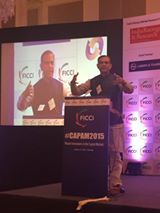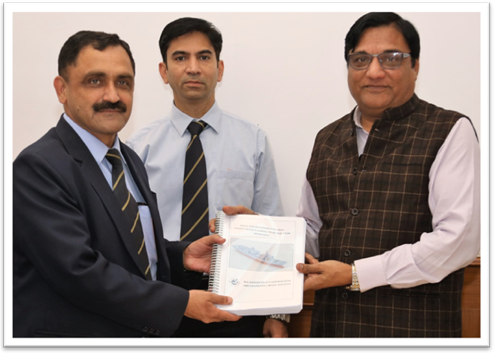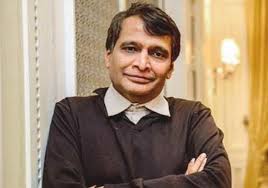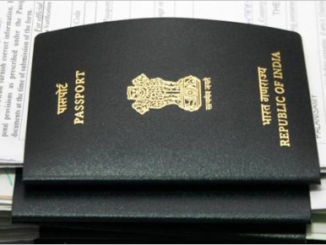
“Hamari sarkar garibo ki sarkar hain,” said Mr Jayant Sinha, Minister of State for Finance, Government of India, as he delivered the Valedictory Address at the concluding session of CAPAM 2015 organised by FICCI here today. Highlighting his government’s framework for economic transformation, the minister emphasised that the present Government’s policies are investment oriented and supply-side focused. “We want to build hard and soft assets like infrastructure, skills and employability of people,” he clarified. “That’s how we build India’s productive capacity.” He explained that the country has to have the productive capacity to power growth for the next 30 years. In the past, there were flashes of high growth, but then that was followed by inflation. “It is time to get out of that trap. The answer is to build the country’s hard and soft assets, ensure longer term growth and lift all of our people out of poverty.” Mr Sinha enunciated five principles to pursue this strategy.
The Government is pro-poor; and because it is pro-poor, it is pro-market; the Government believes in empowerment, not entitlement; minimum government, maximum governance; and cooperative federalism. He discussed the various measures taken by the Government, like universal social security in the form of the ‘Jan Dhan Yojana’. Various initiatives have been undertaken to provide jobs to the youth, such as ‘Make in India’, ‘Skill India’, ‘Mudra Yojana’ and ‘Startup India’. “For the first time micro businesses have the ability to get a loan from a bank without security or collateral,” said the Minister referring to the MUDRA bank initiative. The Government has invested Rs 50000 crore in agriculture. The aim is to have water in every field. The financial sector is being transformed in a big way. Large investment has also gone into creating viable infrastructure. And there is a move to change the fiscal architecture of the country, with devolution of powers and more funds to the states, the Minister added. But, the Minister added, “It takes time to take initiatives from the policy level into day to day lives.” That is the reason why the optimism seems to be muted somewhat. Mr Sinha was confident that the Government’s policy initiatives will transmit through to the economy. Another reason for muted optimismis that the global economy is quite ‘soft’ at present. Hence our exports are not growing as quickly as they should. He called upon the gathering to look at the positive side of things. “If we want to build a better India we can start now,” he said. Mr Atul Joshi, Managing Director and Chief Executive Officer, India Ratings and Research, delivered a presentation on ‘India in a Sweet Spot’. “We are the fastest growing economy in the world, the largest working population, the largest youth and consumer population over the next 30-40 years, but are we capitalising? How is India positioned across the world and across some of the developed markets?” He presented elaborate statistics to show that India is doing better than many of its counterparts globally. India’s GDP at 7.4% is definitely ahead of the other BBB rated countries such as Indonesia, Mexico and South Africa. In terms of real GDP growth in the last five years, India seems to be substantially better positioned than most of the emerging economies.
“This is the consumption power that this country holds,” he said. But the ideal situation would be to have high growth and manageable inflation, not vastly fluctuating inflation. Mr Joshi also pointed out that today rural growth in India is not restricted to agriculture. Presently, 70% of rural growth is non agricultural. This shows that the resilience to the monsoon has increased. India’s banking sector is least susceptible to macro risks. Global events will have minimal impact on the country’s banking system. Without a very strong banking system it would not be feasible for the economy to grow substantially. With India’s consumption power, rural growth trajectory and strong banking system, the country now needs to capitalise on these advantages to remain in the ‘sweet spot’ and come out a winner. Mr Sunil Sanghai, Chairman, FICCI Capital Markets Committee and MD & Head-Banking, India, HSBC, welcomed the Minister and the delegates, and Mr Anup Bagchi, Co-Chair, FICCI’s Capital Markets Committee and MD and CEO, ICICI Securities Limited, delivered the Vote of Thanks.







Leave a Reply
You must be logged in to post a comment.